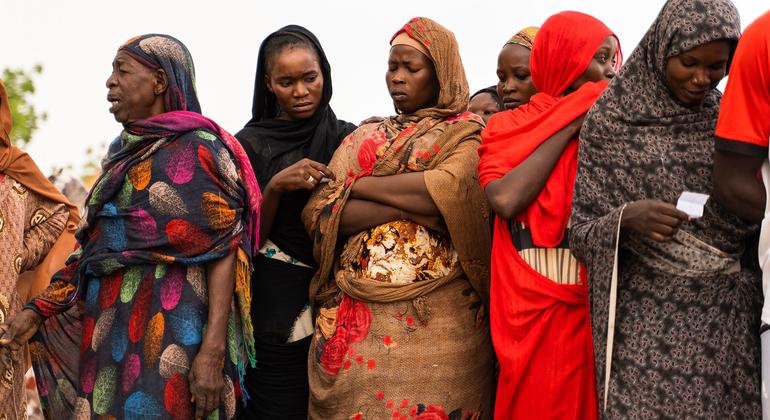The situation in Sudan is dire, with people dying of hunger, conflict, protection issues, and displacements on a daily basis. Kristine Hambrouck, UNHCR Representative in Sudan, emphasized the enormity of the needs in the country, especially compounded by several weeks of heavy rainfall. The ongoing famine in Zamzam camp near El Fasher town is a critical concern, with the UN World Health Organization (WHO) reporting 658 cases and 28 deaths since the latest outbreak of cholera was declared on August 12. This follows a previous outbreak in May that resulted in over 11,300 cases and at least 300 deaths.
The WHO also warned that at least 12 of Sudan’s 18 states are facing three or more disease outbreaks, including cholera, malaria, measles, and dengue. However, despite the urgent need for lifesaving healthcare interventions, resources and local capacity to detect and respond to outbreaks remain limited, particularly in hard-to-reach areas such as the Darfurs and Kordofan states.
In addition to the challenges posed by the ongoing cholera outbreak, Ms. Hambrouck highlighted the spread of cholera in areas hosting internally displaced people and refugees, particularly in Kassala, Gedaref, and Jazirah states. She noted that there have been 119 cholera cases in three refugee sites in Kassala, with five refugees succumbing to the disease. The overcrowded conditions in refugee camps and displacement sites exacerbate the challenges of addressing the emergency, with people living in close quarters without adequate access to water systems.
The situation in Sudan has been further complicated by the conflict that erupted in April 2023 between rival militaries over a proposed transition to civilian rule. This conflict follows a military coup in 2021 and the ousting of long-time President Omar Al-Bashir in 2019. Ms. Hambrouck emphasized the need for investments to address the urgent humanitarian needs in Sudan, given the overcrowded conditions and lack of capacity to respond effectively to outbreaks.
Despite these challenges, an initial vaccination campaign has successfully protected over 50,000 people from cholera, with hundreds of thousands more doses on the way. Dr. Shible Sahbani, WHO Representative in Sudan, confirmed that the vaccination campaign concluded in Kassala and that additional doses were being deployed to reach more vulnerable populations.
The situation in Sudan underscores the urgent need for international assistance to address the humanitarian crisis in the country. The ongoing conflict, coupled with disease outbreaks and food insecurity, has created a perfect storm of challenges that require immediate and sustained support from the international community. As the needs in Sudan continue to grow, it is crucial for organizations like the UNHCR and WHO to receive the necessary resources to provide lifesaving assistance to those affected by the crisis. Only through coordinated efforts and increased investment can the people of Sudan begin to rebuild their lives and recover from the devastating impact of conflict and disease.









